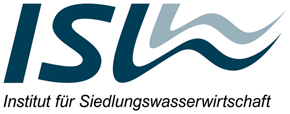
![[Translate to English:] [Translate to English:]](/fileadmin/_processed_/1/4/csm_Schriftenreihe_2018_7_b_fd1e482626.jpg)
Xin Wu
Elimination of Microcystin-LR and Selected Pharmaceuticals using Biologically Active Filters
Abstract
A number of new emerging pollutants have been detected in different matrices of our environmental system over the last decades. Due to their potential hazardous long-term impact on the aquatic system and human beings, their discovery has been drawing increasing attention. The target substances of this study are two groups of emerging pollutants. Microystin-LR (MC-LR) is of major concern in regards to drinking water and pharmaceutical residues with respect to wastewater.
The objective of this thesis is to study the elimination of MC-LR and four selected pharmarceutical residues, diclofenac, ibuprofen, carbamazepine and sulfamethoxazole by using biologically active filters. Three different types of packing materials, activated carbon, lignite and basalt were investigated. As revealed by experimental results, biofilters with granular activated carbon (GAC) and lignite as packing materials proved highly efficient eliminating both target substances. The lignite filter reached steady removal efficiencies of > 90% for both target substances, even at filter loads as high as 60 µg/L∙h for MC-LR. The GAC filter reached high removal efficiencies of over 70 % for MC-LR at an influent concentration of < 30 µg/L or at a filter load of < 30 µg/L∙h. The removal efficiencies of the four pharmaceuticals by the GAC filter were steadily at over 80%. The basalt filter was significantly less efficient by comparison, with an average removal efficiency of 40% for MC-LR. The basalt filter also proved incapable of eliminating carbamazepine and sulfamethoxazole.
The experimental results indicated that the removal rates of MC-LR in both GAC and lignite filters increased with a rising influent concentration or filter load, thus suggesting a dependency of the substrate reaction rate on the substrate supply. Assuming a reaction kinetic between zero- and first-order, two models were developed to describe the removal of MC-LR by lignite- and GAC filters as a function of the MC-LR influent concentration and empty bed contact time (EBCT). The models suggested that the elimination of MC-LR in both GAC and lignite filters is influenced both by the influent concentration of MC-LR and the EBCT, instead of solely by the combination of both parameters, the filter load.
The thesis investigated the role of the biological degradation and adsorption mechanisms in the biofiltration process using adsorptive packing materials e.g. GAC. Experiments were carried out on parallel GAC filters with and without biological activities to study their efficiency of COD-elimination. While 75% of the COD-elimination was attributed to the biological degradation, the adsorption capacity of GAC was responsible for the remaining 25% of COD-removal. Biological degration was therefore the more important mechanism in the biofiltration process. It could not be clarified whether the adsorption capacity of GAC was not depleted or a result of the biological regeneration.
The economic feasibility of the biofiltration process was also investigated. The annual costs of biofiltration were compared to the powdered activated carbon (PAC) and GAC filtration processes in treating pharmaceutical residues in waste water. The selection of the EBCT affects the annual costs of the biofiltration process significantly. With an EBCT of 75 minutes or less, the biofiltration process can economically compete with both PAC and GAC processes. By comparison, with an EBCT of 2 h or more, the biofiltration process is at an economic disadvantage. For waste water treatment plants of fewer than 100,000 habitants, the biofiltration process presents itself as an economically viable option compared to both PAC and GAC processes.
Vacancies of TU Braunschweig
Career Service' Job Exchange
Merchandising
Term Dates
Courses
Degree Programmes
Information for Freshman
TUCard
Technische Universität Braunschweig
Universitätsplatz 2
38106 Braunschweig
P. O. Box: 38092 Braunschweig
GERMANY
Phone: +49 (0) 531 391-0
